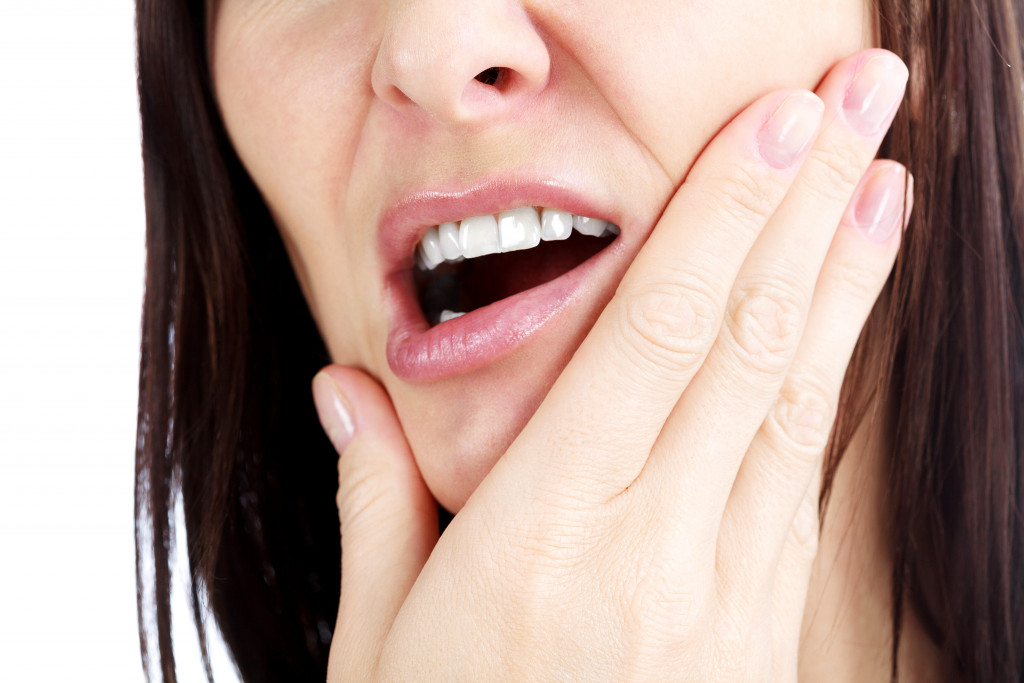Many people have some form of jaw abnormality, ranging from a slightly misaligned bite to an overbite or underbite. In most cases, these abnormalities are caused by a combination of genetic and environmental factors. Here are five of the most common reasons why jaw abnormalities form.
Genetics
One of the most common reasons for jaw abnormalities is genetics. For example, if your parents or grandparents had an overbite or underbite, you would have a good chance. However, while genetics may be a predisposing factor, it’s not the only factor. Other factors, such as how you hold your mouth when you sleep or chew, can also play a role in the development of jaw abnormalities.
Poor Dental Habits
Poor dental habits, such as thumb sucking or using a pacifier for an extended period, can cause jaw abnormalities. In addition, these habits put pressure on the teeth and jawbone, which can lead to misalignment over time.
Mouth Breathing
Mouth breathing is another common cause of jaw abnormalities. When you breathe, your tongue rests against the roof of your mouth instead of against your teeth. This can cause the lower jaw to protrude forward and create an overbite.
Allergies and Enlarged Tonsils
Allergies and enlarged tonsils are two more common causes of jaw abnormalities. Allergies can cause mouth breathing, which we already know can lead to an overbite. Enlarged tonsils can also cause mouth breathing and may need to be removed surgically to correct the problem.

Trauma
Trauma to the face or head can also cause jaw abnormalities. For example, if you’ve ever had your wisdom teeth forcibly removed or been in a car accident, you may have noticed changes in your bite afterward. This is because trauma can damage the temporomandibular joint (TMJ), which connects the lower jaw to the skull. Damage to the TMJ can lead to problems with chewing, biting, and even talking. It can also cause pain in the face and neck area. Trauma is one of the less common causes of jaw abnormalities, but it’s still worth mentioning here.
Jaw abnormalities are relatively common and can be caused by various factors, including genetics, poor dental habits, mouth breathing, allergies, enlarged tonsils, and trauma. Thankfully, jaw abnormalities can be treated. Here are some of your best options for treating it.
Dental Services
The most common way to treat a jaw abnormality is through dental services. There are various things that your local orthodontist can do for your jaw abnormality. Here are some things you should seek when treating jaw abnormalities.
Braces
The most common dental service for treating a jaw abnormality is braces. There are many different types of braces available, and your orthodontist will be able to recommend the best style for your specific case. Braces generally work by gradually moving your teeth into the correct position over time. This process can take months or even years, but it’s usually worth it.
Headgear
Headgear is another standard treatment for jaw abnormalities. It’s usually used in conjunction with braces and helps to move the teeth and jaws into the correct position. Headgear is worn while you sleep and is usually only needed for a few hours daily.
Surgery
In some cases, surgery may be necessary to treat a jaw abnormality. Surgery is usually only recommended if braces and headgear haven’t successfully corrected the problem. Surgery is a more invasive option and should only be considered a last resort.
Preventive Options
Although some people might have their abnormality the moment they are born, most get it gradually in life. During these situations, it’s better to avoid jaw abnormalities altogether. Here are some ways you can do that.
Avoid Hard Food
One way to prevent jaw abnormalities is to avoid hard foods. Things like candy, chips, and ice can put unnecessary pressure on your teeth and jaws and cause problems over time.
Use a Mouth Guard
Another way to prevent jaw abnormalities is to use a mouth guard. Mouthguards are usually worn during sports or other activities where there’s a risk of injury to the face. They help to protect your teeth and jaws from trauma and can reduce the risk of developing a jaw abnormality.
Practice Good Oral Hygiene
Lastly, you should practice good oral hygiene to prevent jaw abnormalities. This means brushing and flossing your teeth regularly and seeing your dentist for regular checkups and cleanings. These steps will help keep your teeth and jaws healthy and reduce the risk of developing a jaw abnormality.
Treating a jaw abnormality can be a long and challenging process, but it’s important to remember that options are available. Don’t hesitate to seek treatment if you or someone you know has a jaw abnormality. There’s no need to suffer from this condition any longer.


